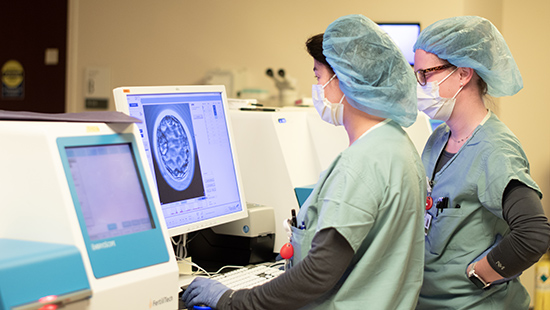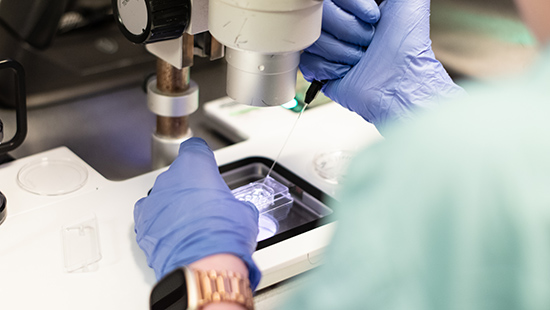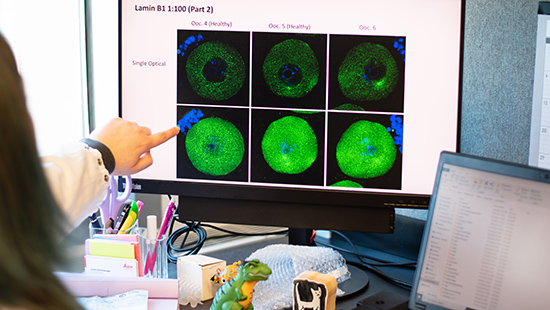At the forefront of reproductive aging and systemic aging.
The Duncan Lab
The female reproductive system is the first to age in the human body, with egg quantity and quality declining in women in their mid-thirties and reproductive function ceasing completely at menopause. Female reproductive aging has significant consequences on both fertility and overall health.
The Duncan Lab uses mammalian model systems to investigate the overarching hypothesis that deterioration of oocyte-intrinsic cellular pathways together with alterations in the ovarian environment underlie the age-associated decline in female gamete quantity and quality. Our research will improve the fertile-span and health-span across generations through discovery of novel cellular pathways for therapeutic interventions.

Our Work

Research
Our research on ovarian and follicle biology is funded through diverse mechanisms. Read more about our ongoing as well as completed research projects.

Research Programs
We are committed to helping women modulate their reproductive capacity across their reproductive lifespan. To this end, we are also leading an interdisciplinary, multi-site collaboration to discover novel non-hormonal female contraceptives.

Recent Publications
We disseminate our findings in top peer-reviewed scientific journals. Please read more about our latest discoveries.